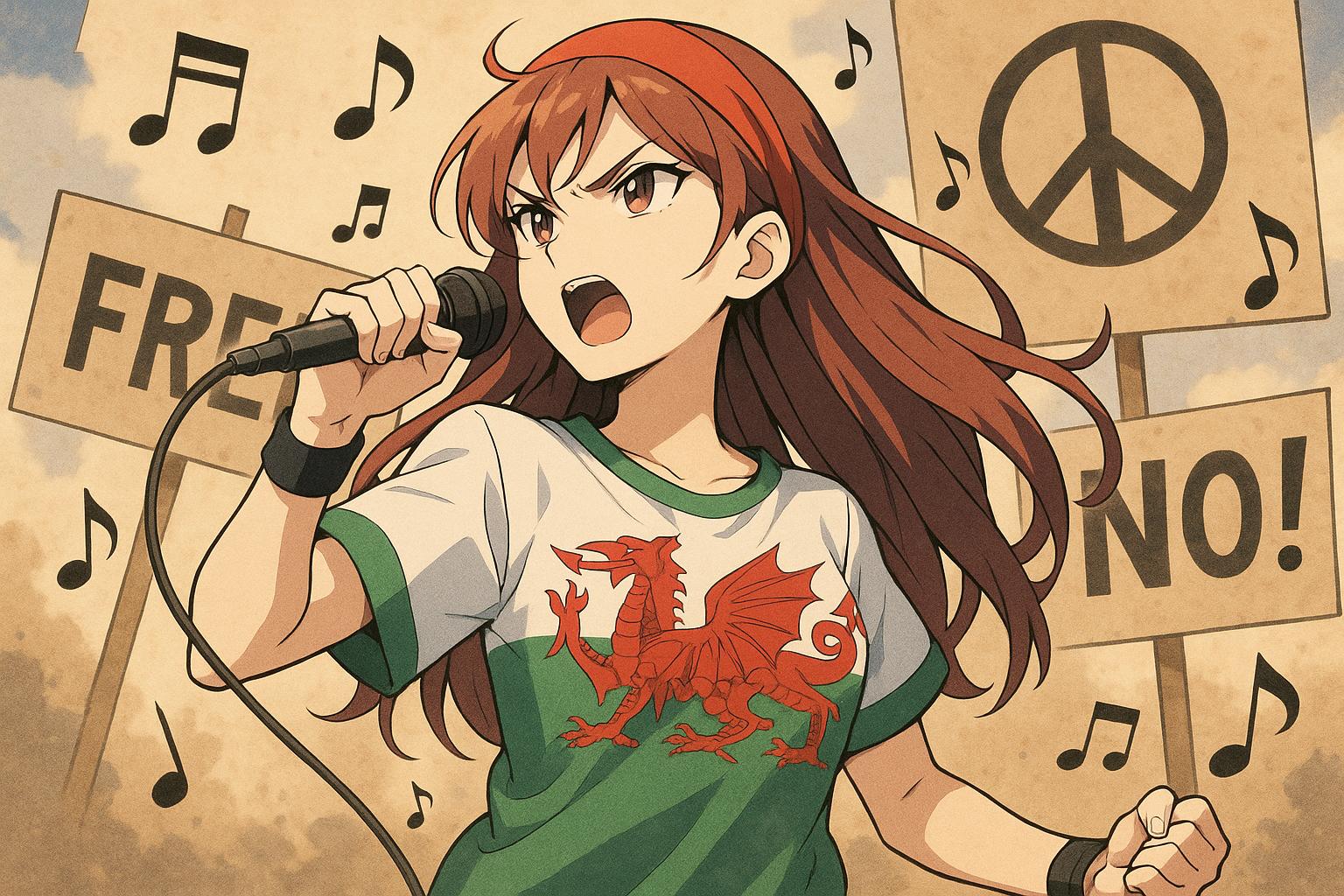Over a hundred Welsh musicians have united in support of Belfast rap group Kneecap, following a wave of concert cancellations precipitated by controversial comments made during recent performances. This show of solidarity is part of a broader movement encompassing artists across the UK who defend Kneecap's right to artistic expression amid escalating scrutiny and calls for censorship.
The growing backlash against Kneecap intensified after footage emerged from their concerts, allegedly showing a member shouting slogans supportive of Hamas and Hezbollah. In one instance, the member encouraged listeners to target Conservative MPs, remarks that have drawn the attention of London’s anti-terror police. The group, known for their provocative lyrics that often intertwine Irish republican themes with contemporary socio-political discourse, claims these comments were taken out of context, asserting that their intention is to highlight issues of oppression and injustice rather than advocate for violence.
Kneecap’s recent performance at the Coachella festival gained notoriety for its outspoken anti-Israel messages, including chants calling for Palestinian liberation. The group's stance forms part of a larger critique of Israel's actions in Gaza, where civilian casualties have reportedly surpassed 52,000 since the conflict reignited in October 2023. Their dynamic blend of satire and activism echoes a longstanding tradition among artists in Northern Ireland, who have historically used their platforms to advocate for social justice and political change.
Joining the ranks of artists such as Paul Weller, Pulp, and Massive Attack, over forty musicians recently penned a letter supporting Kneecap, arguing that the focus on the group distracts from the dire humanitarian situation in Gaza. The latest wave of support from Welsh musicians, which includes prominent figures like Gruff Rhys of Super Furry Animals and Welsh language singer-songwriter Steve Eaves, reflects a collective concern that the conversation is disproportionately fixated on Kneecap rather than the broader implications of ongoing violence in the region. Eaves remarked that this focus detracts from the "relentless Israeli aggression" facing civilians in Gaza, a sentiment echoed by many within the Welsh music community, which prides itself on a tradition that champions peace and justice.
Despite their claims of artistic freedom, Kneecap faces pressure from various quarters, including calls from some UK politicians for their performances—such as an upcoming set at Glastonbury—to be cancelled. Conservative leader Kemi Badenoch, for example, has vocally opposed their right to perform, labelling it a form of “cancel culture.” Yet many supporters assert that attempts to silence Kneecap represent an infringement on freedom of expression, with critics warning of a dangerous trend towards deplatforming artists who vocalise contentious political positions.
In response to the mounting criticism and the wider implications of their messaging, Kneecap has sought to clarify their stance, reportedly offering apologies to the families of British MPs Jo Cox and David Amess, both murdered in separate political attacks. They assert that their earlier statements have been misinterpreted, exacerbating the issue of artistic expression versus advocacy of violence. This intricate dance between protest and provocation continues to shape debates about the limits of artistic discourse in an increasingly polarised world.
As the conversation around Kneecap unfolds, it raises critical questions about the nature of artistic freedom and the boundaries of acceptable political expression in music. While some view their performances as a necessary outcry against injustice, others see a troubling trend of incitement that could undermine the very messages of peace and solidarity they aim to promote.
The confluence of artistic expression, political activism, and social justice remains at the heart of Kneecap's narrative, prompting a re-examination of how music serves as both a catalyst for change and a potential source of controversy. As more artists rally around the group, the outcome of this cultural moment will likely resonate beyond the stage, galvanising discussions about the responsibilities that come with a public platform amid complex global issues.
Reference Map
- Paragraph 1 - (1)
- Paragraph 2 - (2), (3)
- Paragraph 3 - (1), (4)
- Paragraph 4 - (1), (3)
- Paragraph 5 - (1), (2), (4), (6)
- Paragraph 6 - (3), (5), (7)
- Paragraph 7 - (2), (4)
- Paragraph 8 - (3), (4)
- Paragraph 9 - (1), (3)
Source: Noah Wire Services
